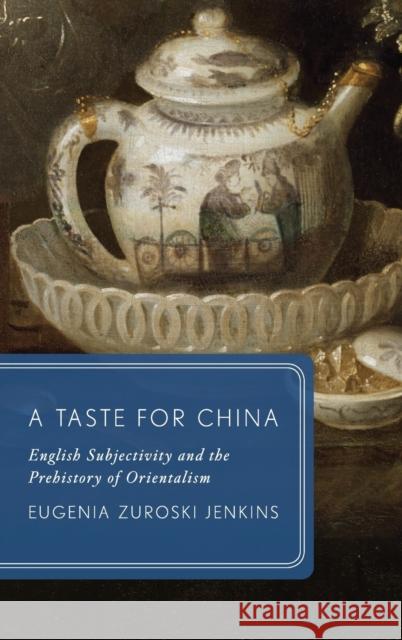A Taste for China » książka
topmenu
A Taste for China
ISBN-13: 9780199950980 / Angielski / Twarda / 2012
Challenging existing narratives of the relationship between China and Europe, this study establishes how modern English identity evolved through strategies of identifying with rather than against China. Through an examination of England's obsession with Chinese objects throughout the long eighteenth century, A Taste for China argues that chinoiserie in literature and material culture played a central role in shaping emergent conceptions of taste and subjectivity.
Informed by sources as diverse as the writings of John Locke, Alexander Pope, and Mary Wortley Montagu, Zuroski Jenkins begins with a consideration of how literature transported cosmopolitan commercial practices into a model of individual and collective identity. She then extends her argument to the vibrant world of Restoration comedy-most notably the controversial The Country Wife by William Wycherley-where Chinese objects are systematically associated with questionable tastes and behaviors. Subsequent chapters draw on Defoe, Pope, and Swift to explore how adventure fiction and satirical poetry use chinoiserie to construct, question, and reimagine the dynamic relationship between people and things. The second half of the eighteenth century sees a marked shift as English subjects anxiously seek to separate themselves from Chinese objects. A reading of texts including Aphra Behn's Oroonoko and Jonas Hanway's Essay on Tea shows that the enthrallment with chinoiserie does not disappear, but is rewritten as an aristocratic perversion in midcentury literature that prefigures modern sexuality. Ultimately, at the century's end, it is nearly disavowed altogether, which is evinced in works like Charlotte Lennox's The Female Quixote and Jane Austen's Northanger Abbey. A persuasively argued and richly textured monograph on eighteenth-century English culture, A Taste for China will interest scholars of cultural history, thing theory, and East-West relations.










